
12 October 2017
The Justice Committee will hold an evidence session on The work of
the Parole Board on Wednesday 18 October 2017 at 10.00am in the Thatcher
Room, Portcullis House.
- Watch Parliament TV: Work of the Parole Board
- Justice Committee
Following up the National Audit Office’s February 2017 report Investigation into the Parole Board,
the Committee will be asking about measures taken by the Parole Board
and the Ministry of Justice to improve the effectiveness of the Board
and the parole system which it administers.
The Committee will also be asking about the particular circumstances
of people serving indeterminate sentences of imprisonment for public
protection (IPP prisoners) who have served more than their tariff, and
about steps which the Parole Board and the Ministry have taken, and
could take in the future, to address their situation.
Witnesses
Wednesday 18 October 2017
At 10.00am: Professor Nick Hardwick, Chair, and Martin Jones, Chief Executive, Parole Board of England and Wales
At 10.45am (approx.): Sam Gyimah MP, Parliamentary Under Secretary of State for Prisons and Probation, Ministry of Justice.
Attend the meeting
Members of the public are welcome to attend the meeting.
There is no system of tickets or advance booking for seats in the
public section of the committee room, but there is normally no problem
in seating all members of the public who wish to attend.
Please advise security staff that you are attending a committee meeting and they will direct you.
You should allow at least 20 minutes to go through security.
Ex-prisoners lack support, says probation head
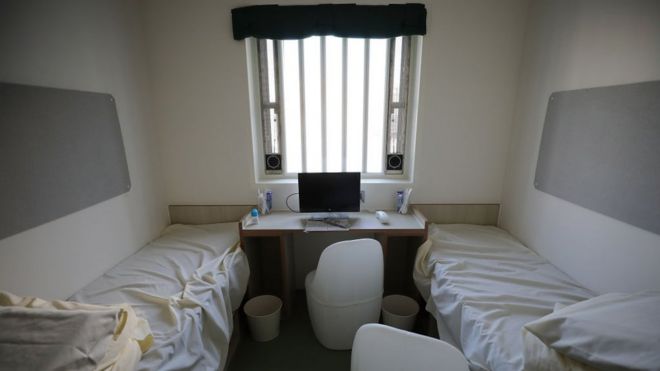 GETTY IMAGES
GETTY IMAGES
Too many prisoners leaving jail are merely being "signposted" towards rehabilitation services, the head of the Probation Service has admitted.
Michael Spurr said a new system of offender supervision in England and Wales "wasn't working" as it should.
Low and medium risk offenders are monitored by staff from 21 community rehabilitation companies (CRCs).
Managers involved say the system doesn't provide firms with enough incentives to tackle re-offending.
Mr Spurr addressed the issue at the annual conference of the Prison Governors Association near Derby, where one governor told him that 200 prisoners had been freed from the jail he runs with "next to nil" resettlement provision.
Mr Spurr responded: "CRCs are not working as we would have wanted them to work," adding that for many there was only a "basic resettlement service" available for offenders.
"Basic signposting is what's going on in a lot of places," he admitted.
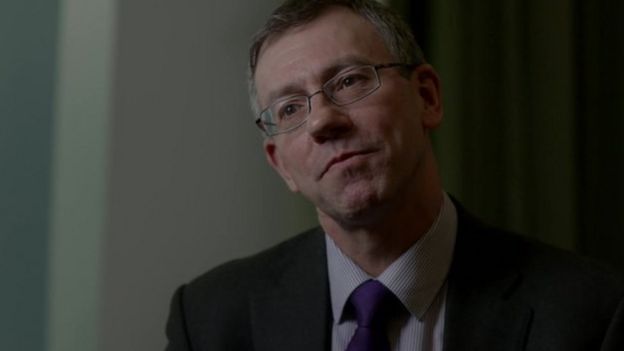
The system was introduced by Chris Grayling, when he was justice secretary, to reduce re-offending rates among the 270,000 people who are released from prison each year or serving community sentences. For the first time, inmates let out after serving terms of less than 12 months were also subject to monitoring.
A new state body, the National Probation Service (NPS), was set up to supervise offenders assessed as posing a high risk of harm, with CRCs responsible for the rest, from 2015.
Although the NPS is considered to be performing satisfactorily, there are huge difficulties at the CRCs.
- 'Lives at risk' from probation service failings
- Rise in offenders on probation charged with serious crime
- Probation staff monitoring more than '70 cases' at a time
- Probation changes causing significant problems, says report
In a highly critical speech last month, Dame Glenys Stacey, the Chief Inspector of Probation, said: "Although there are exceptions, the community rehabilitation companies... are not generally producing good quality work, not at all."
Dame Glenys said new ways of managing offenders had "largely stalled", there'd been little "meaningful" improvement in helping prisoners resettle on release and less involvement by charities and voluntary groups than expected.
"We often find nowhere near enough purposeful activity or targeted intervention or even plain, personal contact," she concluded.
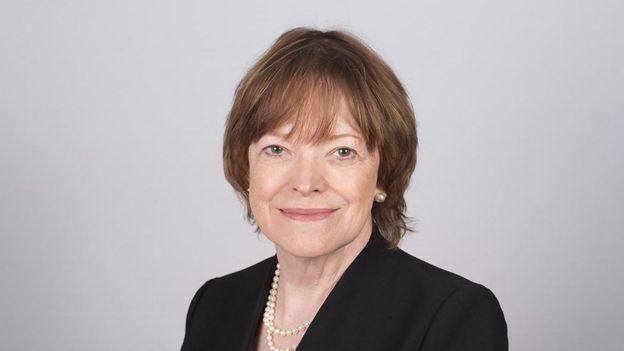 HM CHIEF INSPECTOR OF PROBATION
HM CHIEF INSPECTOR OF PROBATION
There appear to be three underlying causes.
First, the speed of the reforms. Mr Grayling wanted the plans to be embedded by the time of the 2015 general election to make it near-impossible for Labour to scrap them, should they be elected. That meant replacing 35 probation trusts with a part-privatised system within two years - without any pilot scheme.
Jacob Tas, chief executive of Nacro, a crime reduction charity which has a "strategic partnership" with the private firm Sodexo in six CRC areas, said that was a mistake, given the upheaval that had resulted.
"If you engage with this size of change, from my experience it's a good idea to test it out first and see and then learn and then make it better."
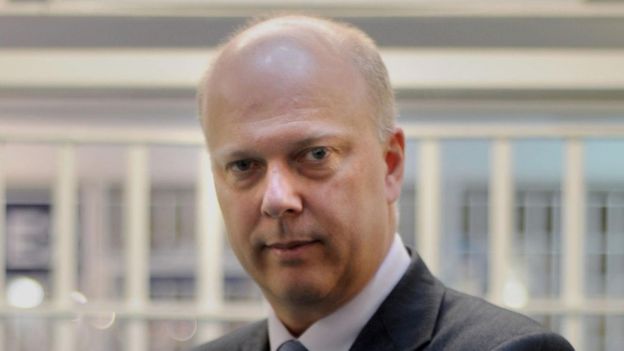 PA
PA
The second reason concerns the CRCs' contracts. They're required to hit 24 performance targets relating, for example, to the timely completion of reports, but only 10% of their predicted payments depend on cutting re-offending.
"We're hitting our target but maybe missing the point," said Chris Wright, chief executive of Catch 22, a charity which is sub-contracted by three CRCs to work with offenders.
He said ministers had put an "industry of bureaucracy" in place to keep companies under control.
"In a classic government way, they think the best way of holding people to account is by building a bureaucracy which ultimately takes you away from doing the things that really matter," said Mr Wright.
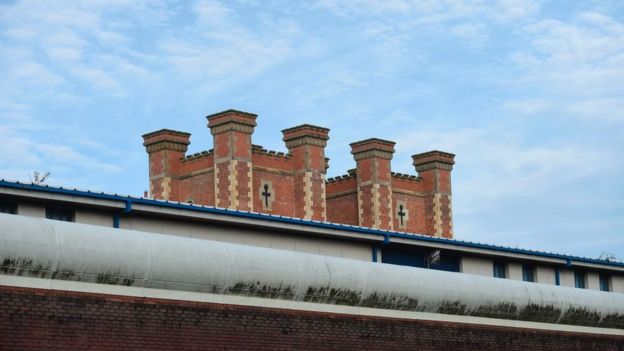 GETTY IMAGES
GETTY IMAGES
It was a concern Mike Trace had when the charity he's in charge of, the Forward Trust, was bidding for CRC contracts.
"What became clear through the process is the innovation and the creativity to reduce re-offending was less important than the legal and financial risks or benefits," said Mr Trace. His organisation, then known as the Rehabilitation for Addicted Prisoners Trust (Rapt), withdrew from competing for contracts.
"I've got to say we were quite relieved not to be awarded any because they look to me to be misdirected and wrongly shaped," he said.
Thirdly, the way the payment mechanism for the CRCs was designed has left them with higher costs and lower income than they expected, leaving resources thinly stretched.
As a result, the government has adjusted the contracts, paying the CRCs extra money, which the Ministry of Justice said would amount to an additional £277m over seven years. Over a decade, the maximum potential value of the contracts is put at £6.5bn.
Michael Spurr said taxpayers would still end up paying less for probation than they did before the Grayling reforms, but after his acknowledgment of how "basic" the service is in many areas, some may question whether it's providing value for their money.
Comment
Boden Of the 3,683 IPP prisoners still in custody in December 2016, 84% (3,081) were beyond their tariff expiry date. Of these, 48% had been in prison five or more years beyond their tariff and
11% were eight years or more beyond their tariff. In July 2016, the Board announced its
intention to reduce the number of IPP prisoners in prison to 1,500 by s 2020?"PP prisoners still in custody in December 2016, 84% (3,081) were beyond their tariff expiry date. Of these, 48% had been in prison five or more years beyond their tariff and 11% were eight years or more beyond their tariff. In July 2016, the Board announced its intention to reduce the number of IPP prisoners in prison to 1,500 by 2020."
11% were eight years or more beyond their tariff. In July 2016, the Board announced its
intention to reduce the number of IPP prisoners in prison to 1,500 by s 2020?"PP prisoners still in custody in December 2016, 84% (3,081) were beyond their tariff expiry date. Of these, 48% had been in prison five or more years beyond their tariff and 11% were eight years or more beyond their tariff. In July 2016, the Board announced its intention to reduce the number of IPP prisoners in prison to 1,500 by 2020."
"As at September 2016 there were 3,859 IPP prisoners in the prison population.
The Board recorded that, of the 3,200 cases eligible for review, 2,336 were currently in the parole system at the Board. Of these, 679 (29%) were awaiting a listing; and 916 (39%) were not yet ready to list for an oral hearing, for example because the Board was awaiting the dossier from the National Offender Management Service (NOMS), awaiting others in the parole system to comply with its directions or awaiting witness availability before the case could be listed. The remaining 32% had already been heard or had been listed for a hearing.
"Delays
mean that some prisoners may have spent longer in prison than they
would have if their parole hearing had been held sooner. Prisoners who
experience delays can claim compensation under the Human Rights Act once
their case is concluded. Prisoners can
claim at a rate of around £50 per month of delay if they are turned down
for parole. If they are released following a delay, they can claim at a
rate of around £650 per month. The Board makes these compensation
payments from its own funds. In 2015-16, the Board received 463 private
law damages claims, more than five times the 89 received in 2014-15.
Since 2011-12, the Board has paid out £1.1 million in
compensation as a result of delays in hearings In 2015-16, prisoners were paid £554,000 in compensation for delayed hearings.
compensation as a result of delays in hearings In 2015-16, prisoners were paid £554,000 in compensation for delayed hearings.
This had increased from £87,000
in 2012-13. As the Board attempts to reduce the backlog of outstanding
cases, it will crystallise its liability for an increased number of
potential compensation claims, and compensation costs may increase. In
its 2015-16 accounts, the Board included a provision for £343,000
relating to known legal claims where these could be reliably estimated
and which it expected it would have to pay out in the future."
http://www.bbc.co.uk/news/uk-41595826
http://www.parliament.uk/business/committees/committees-a-z/commons-select/justice-committee/news-parliament-2017/evidence-session-work-of-the-parole-board/
No comments:
Post a Comment
comment
Note: only a member of this blog may post a comment.